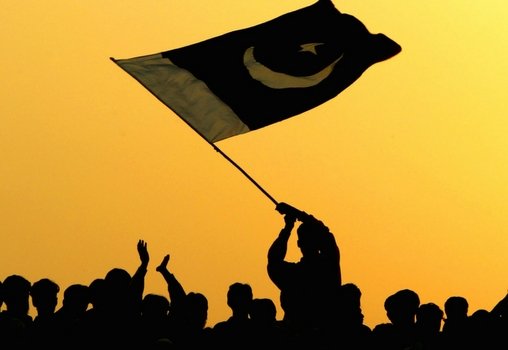As India celebrates its 70th year as an independent nation state, there is another history that it carries along. A history that reels in blood and sacrifice and dividing lines. This month also marks the anniversary of the largest forced migration in human history, the India-Pakistan partition.
For some of us, half of our ancestral families and brethren still reside across the border, and years later, our connect may have dampened to almost extinct levels, but there is a common thread of kinship that still ties us to a lot of people, families and communities across the border. One such case is of the Sindhi community.
Much has been spoken at length about the need to form a coherent identity and to find one’s roots. But, for a Sindhi, the idea of identity lies fudged between two nations with very different histories, that almost always argue with one another. All our lives are an act of fringe dwelling, never belonging to one place. Our voices in academia and activism have been suppressed over the years because we never indigenously occupy one space in the metanarrative of nationhood.
There are about 10 million Sindhis in Pakistan, and post the partition there has been an upsurge in the “forced exodus” that began as part of the 1947 mission to create a separate Muslim State. This is anything but a blame game; there is a planned extermination going on as we speak. Some friends from Pakistan reached out to a couple of Indians to talk about the issue. According to them, the instances of illegal abduction and disappearances have allegedly tripled ahead of Pakistan’s Independence Day with the police ignoring any viable investigation. Attempts to raise news with the Indian media have been junked. Our people have been denied representation, and peaceful protests have led to the activist disappearing never to be found again.
Forced conversions of the Sindhi community in Pakistan have often been called human rights violation, and a strategic stepping back from the promises made post Partition to the Sindh province.
The people of the province have long felt a sense of deprivation and alienation from Islamabad, and have repeatedly demanded greater power to determine their affairs. The process of systemic alienation has been a rather detailed historic event.
Post- Partition, Sindh government set up a Peace Board comprising Hindu and Muslim members to maintain order in the troubled province. PV Tahilramani was secretary of the Peace Board. He is the one who rushed to Khuhro’s office on January 6, 1948, at around 11 am to inform the chief minister that the Sikhs in Guru Mandir areas of Karachi were being killed. According to Khuhro, senior bureaucrats and police officials were nowhere to be found, and he rushed to the scene at around 12.30 pm where he saw mobs of refugees armed with knives and sticks storming the temples. Khuhro tried to stem the violence and Jinnah was pleased with his efforts.
The prime minister, Liaquat Ali Khan, was angry with Khuhro when he went to see him. Liaquat said to Khuhro: “What sort of Muslim are you that you protect Hindus here when Muslims are being killed in India. Aren’t you ashamed of yourself!”
This story continues to this day. Educationalist and rights activist Partab Shivani, writer Naseer Kumbhar and Jeay Sindh Qaumi Mahaz (JSQM) leader Mohammad Umer were picked up by law enforcement and police personnel last night; their families told the media on Tuesday.
There is a stoic silence about this among Indian Sindhis – with zero discourse being produced. Perhaps as a community, our dividing lines run deeper than a sense of oneness.
Are our lives that dispensable? What will it take for us to stand in solidarity with our brethren from across the border?
What will it take for the world to know we exist in our separate subject-hood as individuals in flesh and blood with lives that matter?
I strongly appeal to the Indian media to talk about this issue, which is nearing at a mass genocide and has attracted worldwide concern from Noam Chomsky, Amnesty International and the UN. For there to be freedom for an entire extended community in its truest sense, we need to reach out to the other end of the spectrum, beyond borders and engage in constructive dialogue, while standing with Pakistani Sindhis.
This post is a part of my series #PoliticalIsPersonal on Youth Ki Awaaz that explores how an innocuous act like opening your house gates to someone has immense political echoes across the system. I plan on understanding the link between political thought and personal liberty and how the two almost always are at loggerheads.
